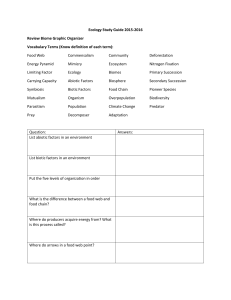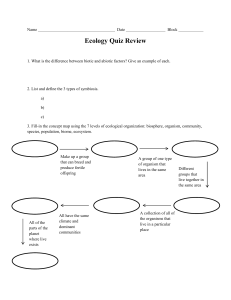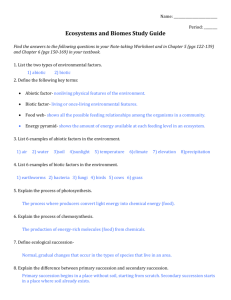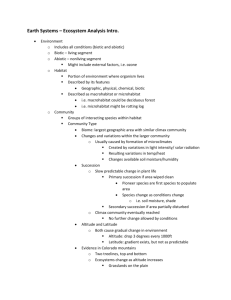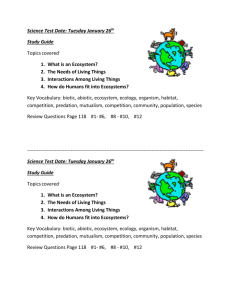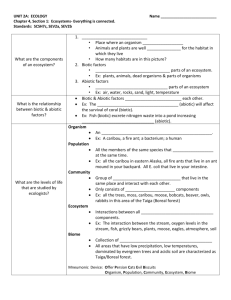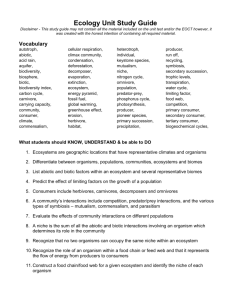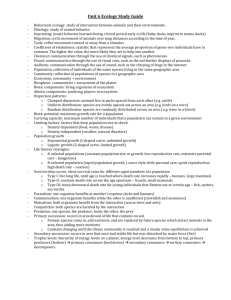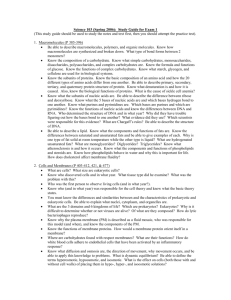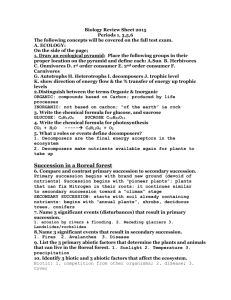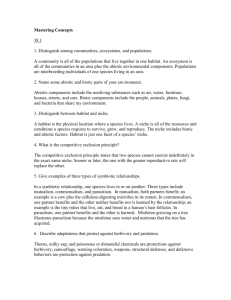Biology Semester One Final Study Guide These are the topics that
advertisement
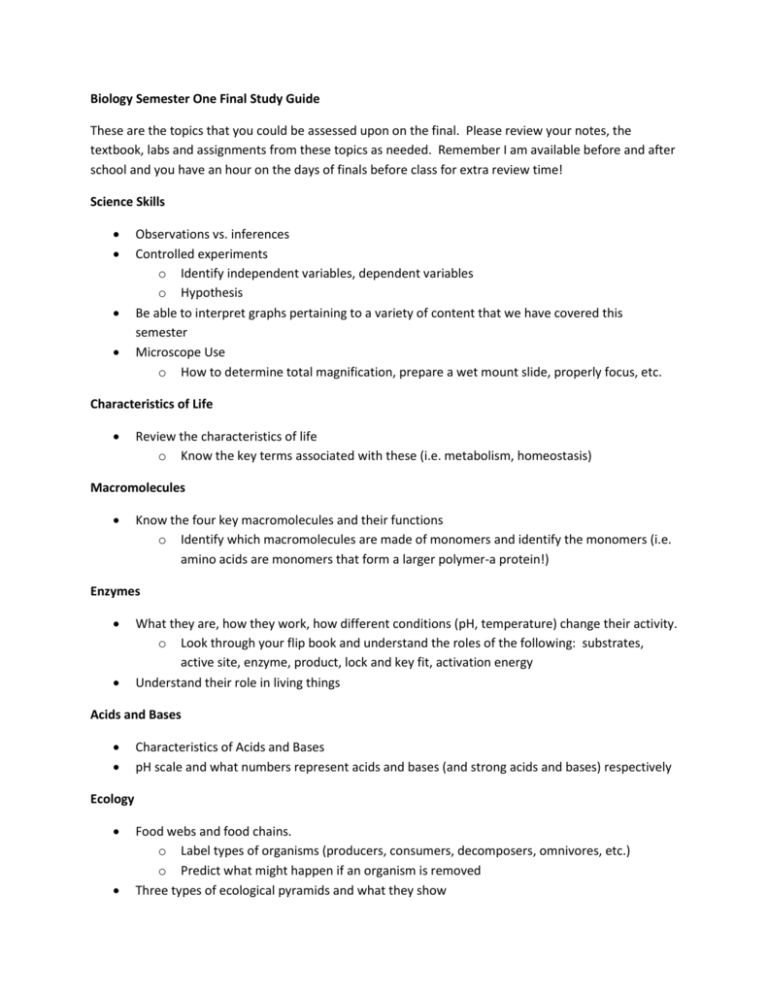
Biology Semester One Final Study Guide These are the topics that you could be assessed upon on the final. Please review your notes, the textbook, labs and assignments from these topics as needed. Remember I am available before and after school and you have an hour on the days of finals before class for extra review time! Science Skills Observations vs. inferences Controlled experiments o Identify independent variables, dependent variables o Hypothesis Be able to interpret graphs pertaining to a variety of content that we have covered this semester Microscope Use o How to determine total magnification, prepare a wet mount slide, properly focus, etc. Characteristics of Life Review the characteristics of life o Know the key terms associated with these (i.e. metabolism, homeostasis) Macromolecules Know the four key macromolecules and their functions o Identify which macromolecules are made of monomers and identify the monomers (i.e. amino acids are monomers that form a larger polymer-a protein!) Enzymes What they are, how they work, how different conditions (pH, temperature) change their activity. o Look through your flip book and understand the roles of the following: substrates, active site, enzyme, product, lock and key fit, activation energy Understand their role in living things Acids and Bases Characteristics of Acids and Bases pH scale and what numbers represent acids and bases (and strong acids and bases) respectively Ecology Food webs and food chains. o Label types of organisms (producers, consumers, decomposers, omnivores, etc.) o Predict what might happen if an organism is removed Three types of ecological pyramids and what they show o Key terms for describing organisms in the tropic levels (autotrophs, primary producers, primary consumers, heterotrophs, etc.) o 10 percent rule with energy pyramids Nitrogen, Carbon and Water Cycles Abiotic and Biotic Factors o How they interact with one another in an ecosystem o Different levels of ecological organization and how biotic and abiotic factors play a role in these levels o Role of decomposers in an ecosystem o How changing or removing an abiotic or biotic factor might change an ecosystem or food web Types of symbiosis Primary and Secondary Succession o Differences o Identify stages of either type of succession o What causes a change in types of organisms found in an ecosystem throughout the various stages of succession? Population Growth o Logistic growth, exponential growth, carrying capacity, limiting factors Be able to interpret graphs of a population over time o Factors that affect population size (including limiting factors, emigration, immigration, birth rate, death rate, etc.) Niches and Competitive Exclusion Principle Cells Prokaryotic vs. Eukaryotic Cells Plant vs. Animal Cells Functions of major organelles: Nucleus, chloroplast and cell membrane EOC Application Problems (like the Ebola Assignment) Identify possible solutions to a problem Identify constraints to solving the problem and explain why they are limitations List unintended consequences of possible solutions
